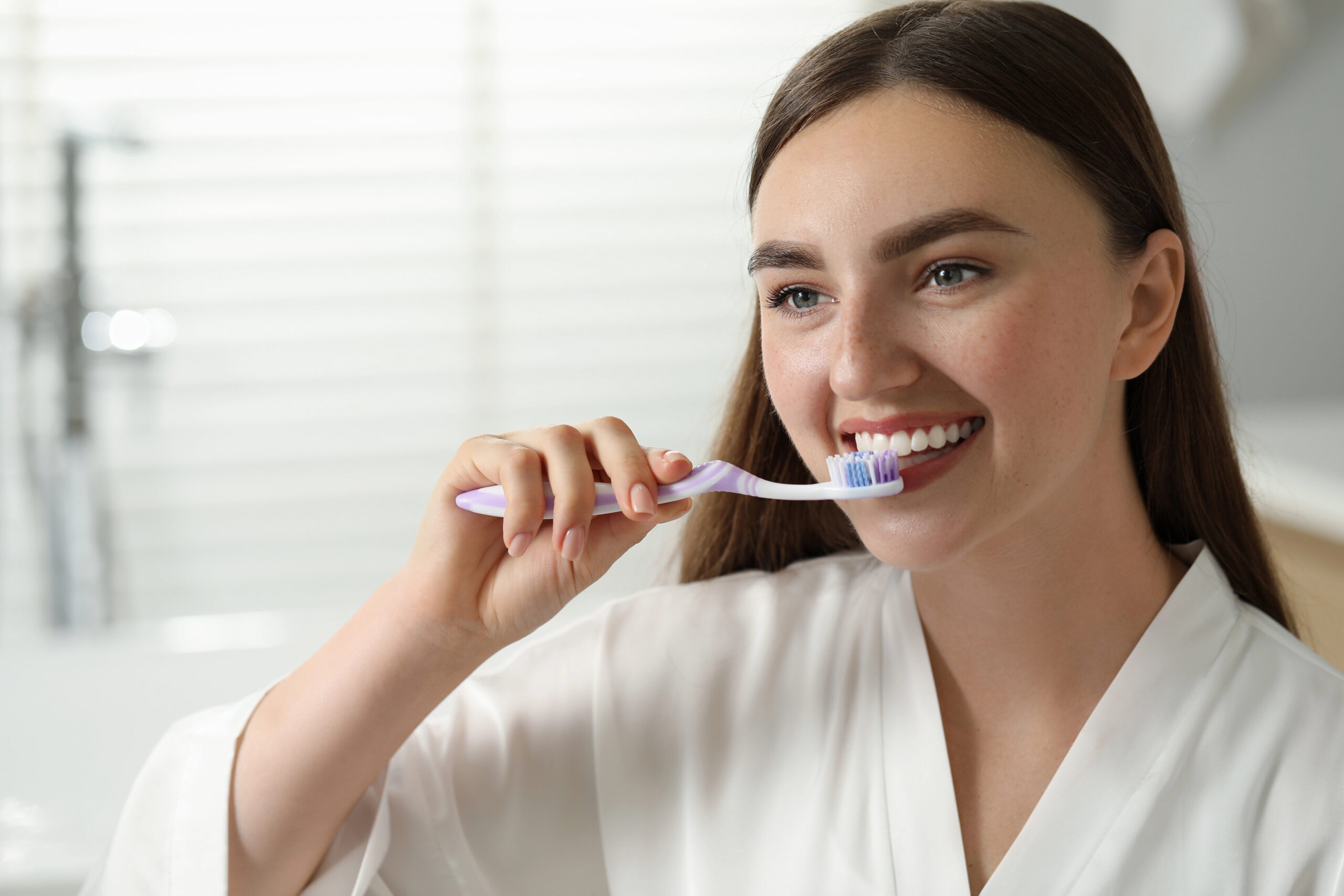Tooth Abrasion: Are You Brushing Too Hard?
We’ve all heard about the importance of brushing our teeth to maintain a healthy smile. But did you know that brushing too hard can actually harm your teeth? As with many things, too much of a good thing, can be a bad thing. Tooth abrasion, a condition caused by harsh brushing or improper technique, is more common than you might think.
At Grand Falls Smiles Dentistry, we’re committed to helping you take the best care of your teeth while avoiding habits that could inadvertently damage them. In this blog post, we’ll explain what tooth abrasion is, how it happens, and what you can do to protect your smile.
What is Tooth Abrasion?
Tooth abrasion occurs when the enamel (the hard, protective outer layer of your teeth) is worn away by mechanical forces. Unlike tooth decay, which is caused by bacteria, abrasion results from physical wear and tear. This damage can expose the softer dentin underneath the enamel, leading to tooth sensitivity, discoloration, and an increased risk of cavities.
While brushing is essential for good oral hygiene, using excessive force or the wrong technique can turn this beneficial habit into a harmful one.
How Brushing Too Hard Causes Abrasion
The primary culprit behind tooth abrasion is aggressive brushing. Using too much pressure or a toothbrush with hard bristles can gradually erode your enamel. This often happens when people believe that brushing harder will clean their teeth more effectively.
In reality, it’s not the pressure but the technique and thoroughness that matter most. When you brush too hard, you’re not just cleaning away plaque—you’re also scraping away the enamel that protects your teeth.
Signs You’re Brushing Too Hard
If you’re brushing too hard, your teeth and gums will likely show some telltale signs. One of the most common indicators of tooth abrasion is sensitivity to hot, cold, or sweet foods and drinks. This occurs because the enamel has been worn down, exposing the underlying dentin.
You might also notice changes in the appearance of your teeth, such as a yellowish tint or visible notches near the gumline where the enamel has eroded. Additionally, aggressive brushing can cause gum recession, making your teeth appear longer and exposing the sensitive roots.
Other Causes of Tooth Abrasion
While brushing too hard is a major cause of tooth abrasion, it’s not the only one. Using abrasive toothpaste, such as whitening or smoker-specific formulas, can also contribute to enamel erosion. These products often contain coarse particles designed to remove surface stains, but they can be too harsh when used frequently.
Other factors, such as habits like chewing on pens or biting your nails, can wear down your teeth over time. Even improper use of dental tools, such as toothpicks, can cause damage if used excessively or aggressively.
How to Brush Properly to Avoid Abrasion
Protecting your teeth from abrasion starts with using the right brushing technique. A soft-bristled toothbrush is your best choice, as it’s gentle on both your teeth and gums. When brushing, use light pressure and short, gentle strokes. Focus on cleaning one section of your mouth at a time, ensuring that you reach every surface of your teeth without overdoing it.
Holding your toothbrush at a 45-degree angle to your gums can help you effectively remove plaque without causing unnecessary wear. Brushing for two minutes, twice a day, is sufficient to maintain oral health without overbrushing.
If you’re unsure about your technique, don’t hesitate to ask your dentist or dental hygienist for a demonstration. They can provide tips to help you brush more effectively while protecting your enamel.
The Role of Toothpaste
The type of toothpaste you use also plays a role in preventing tooth abrasion. Opt for a toothpaste with a low abrasiveness level and look for products labeled as “gentle” or “for sensitive teeth.” These formulations are designed to clean your teeth effectively without causing unnecessary wear.
Avoid using excessive amounts of toothpaste. A pea-sized amount is all you need to get the job done. Additionally, steer clear of brushing immediately after consuming acidic foods or drinks, as this can weaken enamel and make it more vulnerable to abrasion.
What to Do If You Have Tooth Abrasion
If you suspect you have tooth abrasion, it’s important to address the issue sooner rather than later. Your dentist can assess the extent of the damage and recommend appropriate treatment. In mild cases, switching to a gentler brushing technique and using desensitizing toothpaste may be enough to alleviate symptoms and prevent further damage.
For more severe cases, restorative treatments may be needed. This could include applying dental bonding to cover exposed dentin or using fluoride treatments to strengthen weakened enamel. In cases where gum recession has occurred, your dentist may suggest gum grafting to restore lost tissue and protect your teeth.
The Importance of Regular Check-Ups
Regular dental check-ups are essential for catching signs of tooth abrasion early. Your dentist can monitor the health of your enamel, provide guidance on proper brushing techniques, and recommend products that are gentle on your teeth.
At Grand Falls Smiles Dentistry, we’re here to support you in maintaining a healthy, beautiful smile. Whether you’re concerned about tooth sensitivity, enamel erosion, or gum recession, we’re ready to provide personalized care to address your needs.
Protect Your Smile with Grand Falls Smiles Dentistry
Brushing your teeth is a vital part of your daily routine, but brushing too hard can do more harm than good. By using a gentle technique, the right toothbrush, and a non-abrasive toothpaste, you can effectively clean your teeth without damaging your enamel.
If you’re experiencing sensitivity, gum recession, or other signs of tooth abrasion, it’s time to take action. At Grand Falls Smiles Dentistry, we’re here to help you protect your teeth and keep your smile healthy for years to come. Book an appointment with us today!

